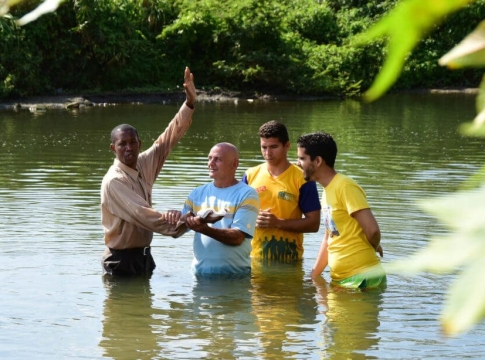
There is no mention of baby baptism in the Bible. Furthermore, it makes no mention of baptizing believers who were raised in a Christian home. Thus, the church had to decide whether to baptize believers’ children when they were still small or to wait till they were old enough to affirm their own faith? Which choice is more in line with what the Bible says? Christians have been at odds over this issue for over 500 years. It is best to approach any opinion on this with humility and acceptance of brothers and sisters who have differing convictions, as people who love God and His Word are not in agreement on this matter.
Including children
Believers who practice infant baptism contend that the entire narrative of God’s revelation points to infant baptism and does not support keeping believers’ children out of the church. These are the things that matter to them:
Children in the covenant of Abraham
God gave Abraham and his offspring His promises in the Old Testament. God established a covenant with Abraham and the people of Israel, his descendants. That bond extended to children. The new covenant was brought by Jesus. Infant baptists hold that God did not alter who was a part of the covenant; as such, infants should be baptized because they are a part of it and the church.
Baptism and circumcision
“In him also you were circumcised with a circumcision made without hands, by putting off the body of the flesh, by the circumcision of Christ, having been buried with him in baptism,” according to Colossians 2:11–12. Here, baptism and circumcision are contrasted. Babies were circumcised as a symbol of the old covenant in the Old Testament. The symbol of the new covenant is baptism. One could argue that it would be odd to believe that the promises made in the Old Testament apply to children but not in the New Testament, as the promises made in the former are smaller than those made in the latter.
Baptism of households
Acts 16 records that two households—those of Lydia (Acts 16:14–15) and the jailer’s household (Acts 16:33)—were baptized as a whole. There were probably kids living in these homes, and if so, the language seems to suggest that they were baptized.
Baptism is received
Infant baptists point out that the Bible never describes baptism as a witness of personal faith, despite the fact that baptists like to talk about it as such. In baptism, you are passive rather than active. One gets baptized. In the name of God, it is run by the church. As a result, newborn baptists regard baptism as a divine act in which God bestows His promises upon the individual receiving baptism. God can, of course, make promises to both adults and children.
Jesus gave the command to baptize
According to Matthew 28:19–20, Jesus told the people to “go and make disciples of all nations, baptizing them in the name of the Father and of the Son and of the Holy Spirit, teaching them to observe all that I have commanded you.” This was the instruction given by Jesus on baptism. Hopefully, every Christian instills in their kids the importance of abiding by all of Jesus’ teachings. Infant baptists hold that the sequence that Jesus established should be followed: baptism comes first, followed by further instruction on what it means to follow Jesus. According to this perspective, faith is more of a conviction arising from God’s grace, which is promised at baptism and is being worked out in the lives of Christian children, than it is a conscious choice that baptism attests to.



